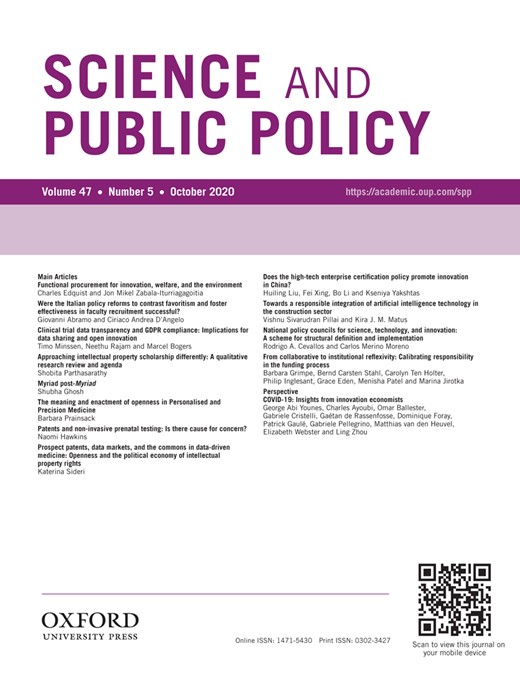-
Views
-
Cite
Cite
Shubha Ghosh, Myriad post-Myriad, Science and Public Policy, Volume 47, Issue 5, October 2020, Pages 638–646, https://doi.org/10.1093/scipol/scaa008
Close - Share Icon Share
Abstract
The US Supreme Court’s 2013 decision, holding patent claims to isolated, endogenous deoxyribonucleic acid (DNA) sequences to be invalid, seemed to have limited negative impact on Myriad Genetics whose patent on the isolated BRCA1 and BRCA2 genes were at the heart of the case. This article explains this minimal impact in two ways. First, the Court’s decision still left synthetic DNA patentable, leaving that as a fruitful source for commercialization by companies like Myriad. The Federal Circuit’s subsequent decision, however, invalidated Myriad’s product claims over the synthetic polymerase chain reaction primers based on the isolated DNA sequences. Second, the Court’s decision did not address the patentability of mined genetic data for diagnostic and therapeutic purposes. This field of genetic data mining is precisely where Myriad has moved in its patenting activity.



